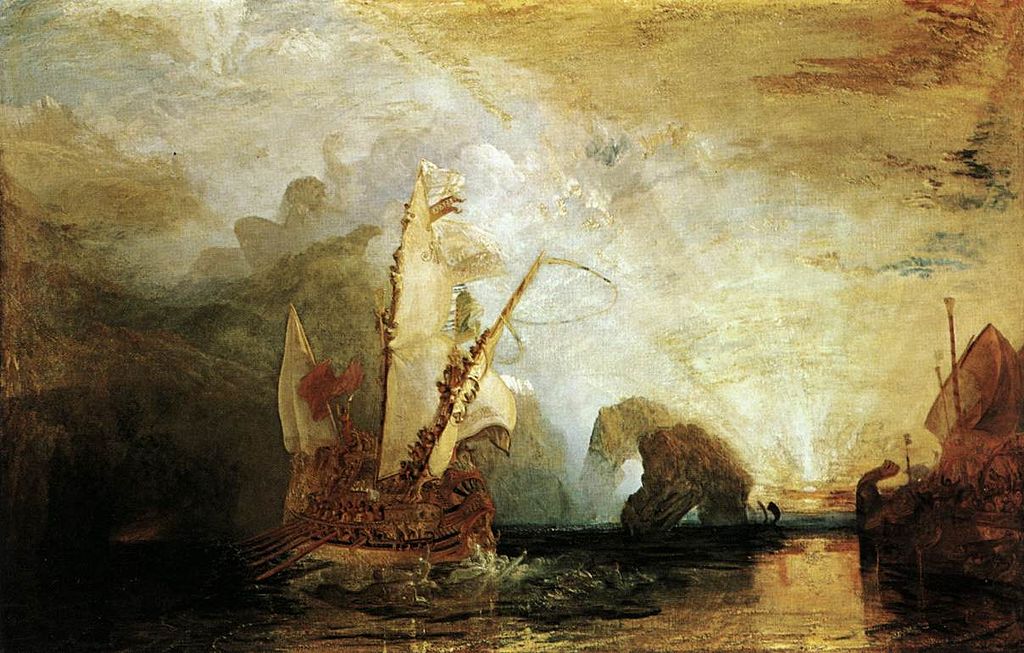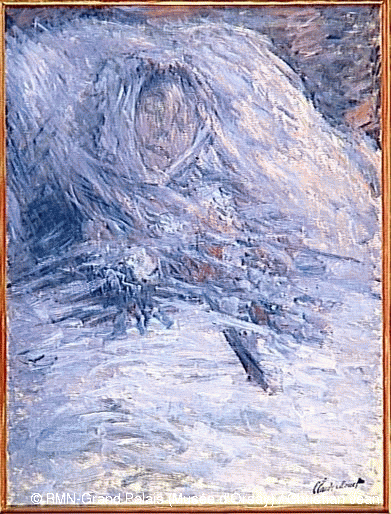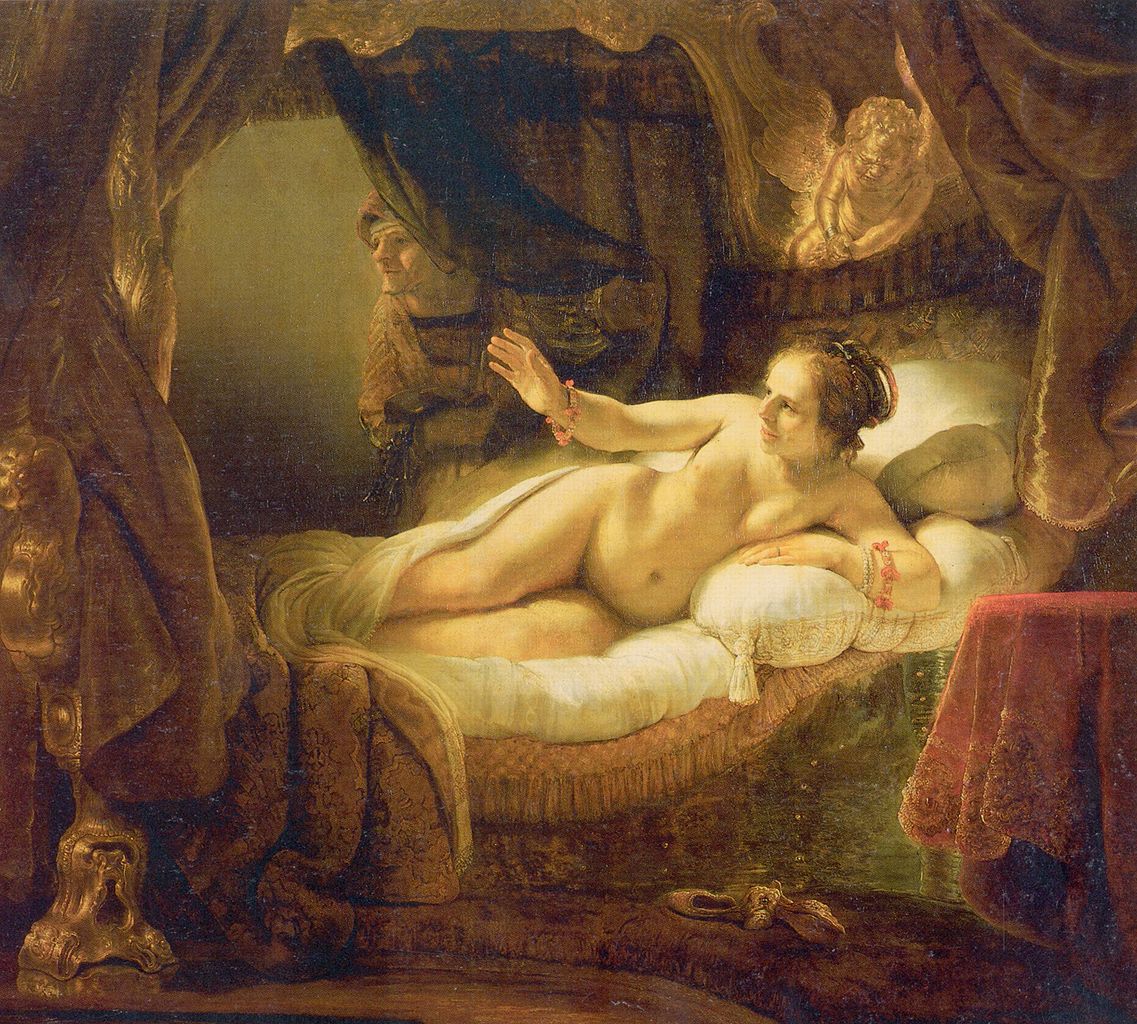... is it immortality that humans long for, or rather its perceived ability to give meaning to life? And isn’t this, then, the role in which arts can replace immortality of nature?

Since brass, nor stone, nor earth, nor boundless sea,
But sad mortality o’er-sways their power,
How with this rage shall beauty hold a plea,
Whose action is no stronger than a flower?
O, how shall summer’s honey breath hold out
Against the wrackful siege of battering days,
When rocks impregnable are not so stout,
Nor gates of steel so strong, but Time decays?
O fearful meditation! where, alack,
Shall Time’s best jewel from Time’s chest lie hid?
Or what strong hand can hold his swift foot back?
Or who his spoil o’er beauty can forbid?
O, none, unless this miracle have might,
That in black ink my love may still shine bright.
William Shakespeare. Sonnet 65
There is one inevitable stage in the process of painting a sonnet: getting thoroughly puzzled with something about it. For this sonnet, the puzzle was this:
The couplet seems to give a tentative promise to preserve for eternity the young man’s beauty, but then why does the sad mortality of long-lasting things play such a huge role, taking over the whole body of the sonnet?
Does one really need this grandiose background to appreciate the fleeting transience of human beauty? We know much more about the mortality of nature than Shakespeare and his contemporaries possibly could, accustomed as we are even to the perishability of stars and the universe itself, but I could neither feel nor see the connection: What does the death of the sun in the distant future have to do with the imminent ageing of one’s lover? How might it possibly help if the sun was, indeed, immortal?
Here is the answer I’ve found…
The seductive idea of immortalising something (or someone) in poetry originated in the Greek antiquity, and outlived its cornerstone: the ancient belief in the absolute immortality of nature. For the ancients, all things in nature were immortal, either ever-present (in inorganic nature) or constantly renewing themselves (in organic nature). They simply didn’t know that neither brass, nor stone, nor earth, nor boundless sea but sad mortality over-sways their power, and so they lived in a now barely imaginable world where everything was eternal except humans. This is how Hannah Arendt describes this worldview in her 1961 essay “The concept of history”:
“<…> embedded in a cosmos in which everything was immortal, it was mortality which became the hallmark of human existence. <…> The mortality of man lies in the fact that individual life with a recognisable life-story from birth to death, rises out of biological life. […] This is mortality: to move along a rectilinear line in a universe where everything, if it moves at all, moves in a cyclical order.” (Arendt 1961: 42)
Hence the fundamental tragic paradox of Greek culture:
“<…> on the one hand, everything was seen and measured against the background of the things that are forever, while, on the other, true human greatness was understood, at least by the pre-Platonic Greeks, to reside in deeds and words […] This paradox, that greatness was understood in terms of permanence while human greatness was seen in precisely the most futile and least lasting activities of men, has haunted Greek poetry and historiography as it has perturbed the quiet of the philosophers.” (Arendt 1961: 45-46)
Poetry’s role was to resolve this paradox by praising great deeds and words and thus immortalising them in the everlasting memory of humankind (that’s why Mnemosyne is the mother of all muses)— as an animal species, the humankind shared in the immortality of organic nature, so one could rely on the immortality of its memory.

Shakespeare is separated from the antiquity by a whole epoch defined by Christianity and its radical reversal of the ancient worldview (now nature was perishable, and individual humans were immortal). But in the sixteenth century, things were a-changing; as the Roman Church was losing its central political role, intellectual and public life was gradually being secularized; in the words of Hannah Arendt, “men once more had become mortals”. When the Renaissance humanists went back to the source of their intellectual tradition, “the ancient opposition of a mortal life to a more or less immortal world failed them. Now both life and world had become perishable, mortal, and futile” (Arendt 1961: 74).
This, then, is the historical context of this sonnet. Its lament over sad mortality of everything actually subverts the immortalising power of art, traditionally grounded in absolute immortality of nature. Paradoxically, though, the couplet reasserts the power of art: what the sonnet seems to be saying is that this miracle of poetry may still “work”; art might be able to replace immortality of nature, instead of relying on it. But how? If earth and boundless sea are perishable, then so is, evidently, black ink…
And yet, that’s the world we live in now, don’t we? We don’t exactly know how and why, but art is still here. And even if its original promise of absolute immortality is gone and forgotten, the conceptual link between art and immortality persists. In the following quote, for instance, Aaron Copland invokes this conceptual link as the raison d’être for arts:
“The arts in general, I think, help to give significance to life. That’s one of their very basic and important functions. The arts soften man’s mortality and make more acceptable the whole life experience. It isn’t that you think your music will last forever, because nobody knows what’s going to last forever. But, you do know, in the history of the arts, that there have been certain works which have symbolized whole periods and the deepest feelings of mankind, and it’s that aspect of artistic creation which draws one on always, and makes it seem so very significant.” (quoted from Brainpickings.org)
Great works of art are actually our only direct experience of immortality, almost the only context which keeps this very word alive in the world: we wouldn’t call earth or sea immortal, but we do still use this word for poems and paintings. But the key word here, I believe, is significance — the meaning of life.

Shakespeare belongs to the age when the sad mortality of nature first threatened the meaningfulness of life. The modern age has grown habituated to the idea that not only earth, but the sun, the stars, the universe itself — everything is mortal, nothing is forever; so habituated to it, indeed, that, for most of us, this knowledge has lost its personal urgency, the immediacy of its connection to our own lives: that painful urgency that can still be heard in Shakespeare’s voice. As Arendt writes, “Today we find it difficult to grasp that this situation of absolute mortality could be unbearable to men” (1961: 74).
This may be true (it is certainly true for me, personally), but this personal longing for immortality in nature has not disappeared from our world completely; Alan Lightman, in a very recent book, writes of it as of an intrinsic paradox of human condition:
“To my mind, it is one of the profound contradictions of human existence that we long for immortality, indeed fervently believe that something must be unchanging and permanent, when all of the evidence in nature argues against us. I certainly have such a longing. Either I am delusional, or nature is incomplete. […] Despite all the richness of the physical world — the majestic architecture of atoms, the rhythm of the tides, the luminescence of the galaxies—nature is missing something even more exquisite and grand: some immortal substance, which lies hidden from view. ” (Lightman 2014).
Perhaps that’s why we can still hear Shakespeare’s pain in his verse, even though the longing has been gradually dulled by resignation and acceptance. But this longing for absolute immortality in a perishable world may not be an eternal universal of human condition, as Lightman suggests, but rather an unhappy part of our intellectual inheritance from the Greek antiquity. It left us with the concept of immortality and its implicit connection to meaningfulness, handed down through generations neatly “packed” in our various languages for easy, unconscious acquisition, even though immortality itself disappeared from the world.
But is it immortality per se that humans long for, or rather its perceived ability to give meaning to life, its seductive promise of significance? And isn’t this, then, the role in which arts can replace the antiquated immortality of nature? Isn’t this what Shakespeare’s tentative hope in this miracle is about?